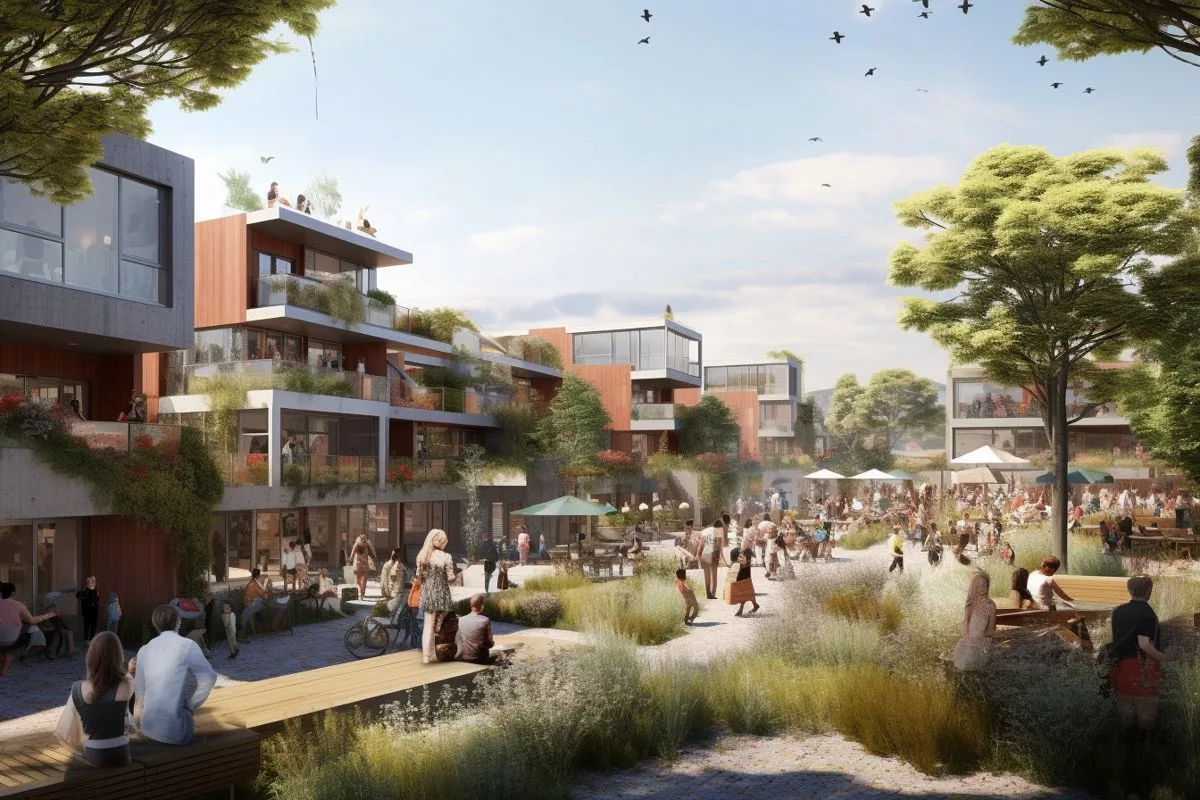The 2023 SACN Urban Festival focuses on “The Working City: Actions for Growth and Recovery,” addressing challenges affecting urban advancement, including strengthening institutions for local government in South Africa and utilizing data-driven decision-making to achieve increased resilience. The Department of Cooperative Governance and Traditional Affairs (COGTA) plays a vital role in supporting municipalities to consistently perform their basic duties and functions. Challenges faced by municipalities include poverty, unemployment, inadequate delivery of services, and political instability. Harnessing data and technology is crucial for improving decision-making, and establishing institutionally resilient local government is essential for a developmental and resilient state.
What is the theme of the 2023 South African Cities Network (SACN) Urban Festival?
The theme of the 2023 SACN Urban Festival is “The Working City: Actions for Growth and Recovery,” which directs us to delve into the pivotal issues affecting our urban advancement, including strengthening institutions for local government in South Africa and utilizing data-driven decision-making to confront obstacles and achieve increased institutional resilience.
Strengthening Institutions for Local Government in South Africa
Esteemed guests and fellow attendees, it is a great privilege to speak at the 2023 South African Cities Network (SACN) Urban Festival. As we celebrate Urban October, we unite to contemplate our accomplishments, participate in thought-provoking dialogues, and propel actions that will define our urban objectives.
Urban areas are dynamic hubs of ingenuity, culture, and progress. However, they also introduce distinct challenges that necessitate our cooperation and collective action. The theme of this year’s Urban Festival, “The Working City: Actions for Growth and Recovery,” directs us as we delve into the pivotal issues affecting our urban advancement.
A core aspect of this theme is “Institutional resilience for local government in South Africa.” Furthermore, we will analyze the utilization of data-driven decision-making to confront obstacles and achieve increased institutional resilience.
As we begin, let us recall that South African local municipalities have a constitutional duty to carry out the responsibilities and functions delineated in the 1996 Constitution of the Republic of South Africa, the 1998 White Paper on Local Government, and the Municipal Systems Act No. 32 of 2000. These legal structures specifically outline the tasks of municipalities, which are essential for serving our nation’s citizens.
The Role of the Department of Cooperative Governance and Traditional Affairs (COGTA) in Supporting Municipalities
The Department of Cooperative Governance and Traditional Affairs (COGTA) plays a crucial role in ensuring that municipalities consistently perform their basic duties and functions. This encompasses prioritizing people and their concerns, facilitating the delivery of municipal services at the appropriate quality and standard, encouraging good governance, transparency, and accountability, and ensuring sound financial management and accounting.
Developing institutional resilience and administrative capacity is vital for establishing a developmental and resilient state. As a nation, we are guided by the National Development Plan (NDP) – our long-term strategy for addressing major challenges. The NDP advocates for a capable and developmental State by addressing issues of political stability, government capacity, and enhancing intergovernmental relations.
In order to assist municipalities, COGTA has devised and implemented various policies and programs, such as the back-to-basics program, which concentrates on building institutional resilience by reinforcing institutional capacity programs for the three spheres of government.
Nonetheless, we must recognize that there are approximately 66 dysfunctional municipalities in our nation, confronted with numerous challenges related to poor governance, weak institutional capacity, inadequate financial management, and political instability. COGTA is focusing its efforts on assisting these municipalities through established systems and programs designed to improve their situation.
Addressing Challenges and Leveraging Data for Improved Decision-Making
South African municipalities face heightened levels of poverty and unemployment, insufficient or ineffective delivery of essential services, obstacles associated with strengthening local economies, striving for spatial transformation, addressing skills and capacity limitations, and wrestling with political and administrative instability. To establish an institutionally resilient local government, we must confront these challenges directly.
As a nation, we have made considerable progress in tackling these challenges through various initiatives. Examples include the National Spatial Development Framework (NSDF), which targets spatial challenges and development priorities; the Integrated Urban Development Framework (IUDF), which aims to address spatial transformation in our metros, intermediate cities, and small towns; and the District Development Model (DDM), which seeks to improve intergovernmental relations and address issues in distressed municipalities.
In the age of the Fourth Industrial Revolution, harnessing data and technology is essential for enhancing our municipalities’ capabilities. Geographic Information Systems (GIS) can play a crucial role in improving service delivery by capturing, spatially representing, and prioritizing data for effective decision-making.
Globally, countries like China have created advanced tools, such as the Shanghai Adapted Index, the Shanghai Manual, and the Global Award for Sustainable Development (Shanghai Award), which support efficient implementation of urban sustainability at the local level. Domestically, eThekwini Metro’s Strat Hub has demonstrated its effectiveness as a tool for policy interventions and actions related to urban safety, road safety, disaster response, and climate risk and vulnerability mapping, among others.
In closing, it is clear that establishing an institutionally resilient local government is of utmost importance. Robust institutions act as the foundation for a developmental and resilient state. Our primary focus must be on doing the best we can for our communities.
I would like to express my gratitude to the South African Cities Network for their invaluable contributions in supporting our municipalities over the years. I wish you all a successful Urban Festival 2023, and may our joint efforts have a lasting impact on our people. Thank you.
1. What is the theme of the 2023 SACN Urban Festival?
The theme of the 2023 SACN Urban Festival is “The Working City: Actions for Growth and Recovery,” which directs us to delve into the pivotal issues affecting our urban advancement, including strengthening institutions for local government in South Africa and utilizing data-driven decision-making to confront obstacles and achieve increased institutional resilience.
2. What is the Department of Cooperative Governance and Traditional Affairs (COGTA)?
The Department of Cooperative Governance and Traditional Affairs (COGTA) plays a crucial role in ensuring that municipalities consistently perform their basic duties and functions, such as prioritizing people and their concerns, facilitating the delivery of municipal services at the appropriate quality and standard, encouraging good governance, transparency, and accountability, and ensuring sound financial management and accounting.
3. How does COGTA support municipalities?
COGTA has devised and implemented various policies and programs, such as the back-to-basics program, which concentrates on building institutional resilience by reinforcing institutional capacity programs for the three spheres of government. COGTA is also focusing its efforts on assisting approximately 66 dysfunctional municipalities in our nation through established systems and programs designed to improve their situation.
4. What challenges do South African municipalities face?
South African municipalities face heightened levels of poverty and unemployment, insufficient or ineffective delivery of essential services, obstacles associated with strengthening local economies, striving for spatial transformation, addressing skills and capacity limitations, and wrestling with political and administrative instability.
5. What initiatives have been taken to tackle these challenges?
Initiatives that have been taken to tackle these challenges include the National Spatial Development Framework (NSDF), which targets spatial challenges and development priorities; the Integrated Urban Development Framework (IUDF), which aims to address spatial transformation in our metros, intermediate cities, and small towns; and the District Development Model (DDM), which seeks to improve intergovernmental relations and address issues in distressed municipalities.
6. Why is data-driven decision-making important for municipalities?
In the age of the Fourth Industrial Revolution, harnessing data and technology is essential for enhancing our municipalities’ capabilities. Geographic Information Systems (GIS) can play a crucial role in improving service delivery by capturing, spatially representing, and prioritizing data for effective decision-making.
7. How have other countries used data and technology to support urban sustainability at the local level?
Countries like China have created advanced tools, such as the Shanghai Adapted Index, the Shanghai Manual, and the Global Award for Sustainable Development (Shanghai Award), which support efficient implementation of urban sustainability at the local level.
8. What is the importance of establishing an institutionally resilient local government?
Establishing an institutionally resilient local government is crucial for establishing a developmental and resilient state. Robust institutions act as the foundation for a developmental and resilient state, and our primary focus must be on doing the best we can for our communities.








